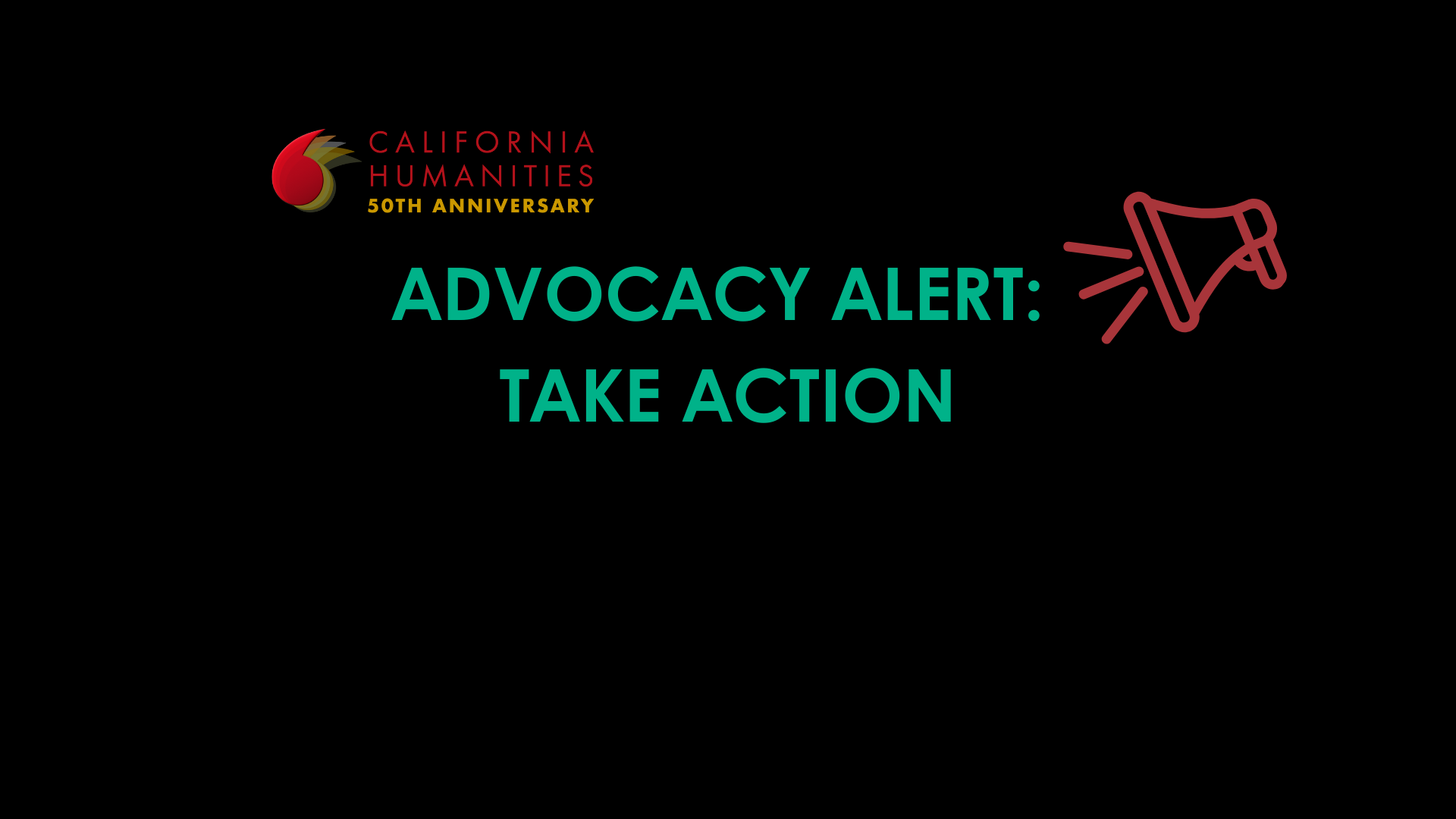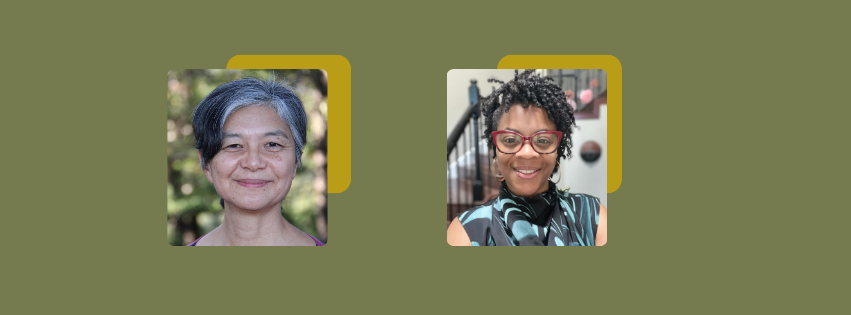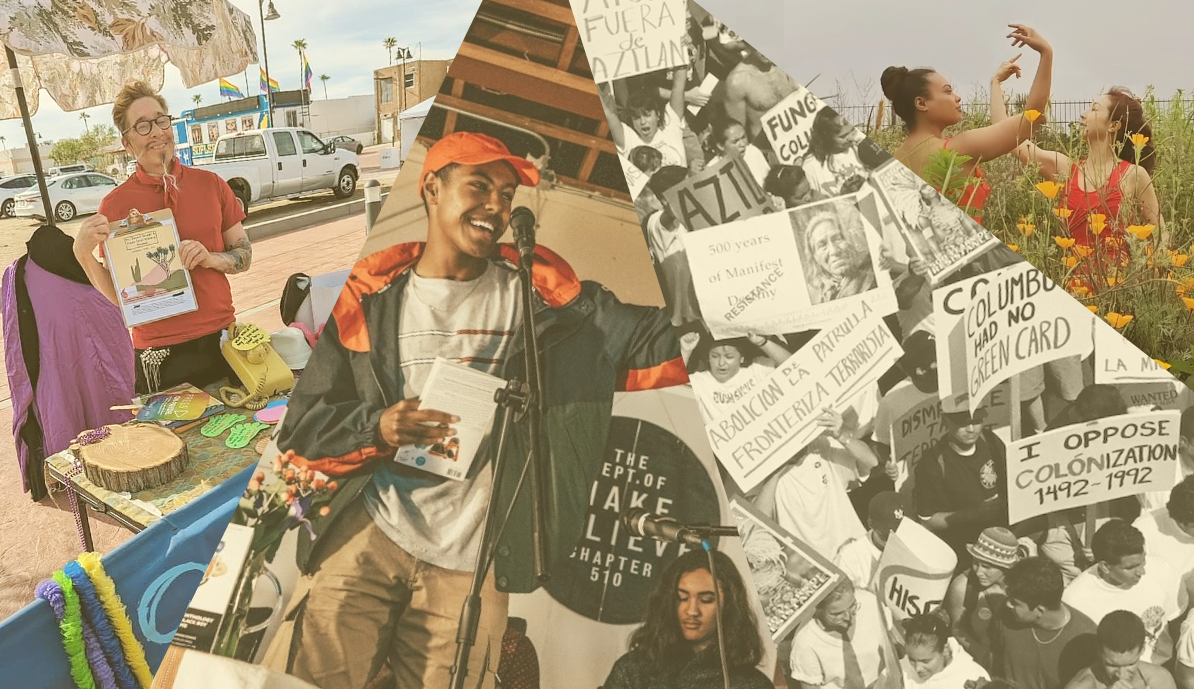During the Covid-19 pandemic, many humanities providers had to pivot quickly to adapt to new realities that drastically limited their use of traditional modes of face-to-face and in-person programming. This session features project directors from communities around the state who experimented with many different approaches to interactive web-based programming during this time, using a range of online tools and platforms.
Participants
Akemi Chan of the Oakland Asian Cultural Center directed Cross-Cultural Voices & Explorations to Empower Change, a series of online film screenings, workshops, performances, book talks, readings, and oral histories that gave voice to Asian/Pacific Islander (API) communities underrepresented in the humanities while exploring pressing issues ranging from immigration and refugee crises to climate change to aging & senior care.
Patrick Coleman of the Arthur C. Clarke Center for Human Imagination at UC San Diego directed SDFutures Collective: Teen Science Fiction and Fantasy Writing Workshops, a series of writing workshops focused around reading and writing speculative fiction. Conduction online, in collaboration with local libraries, the project helped catalyze supportive and creative teen communities, and enabled young people from underserved communities to work with established writers from the San Diego area.
Virginia Guhin directed The Cultural Heritage and Historical Ecology of the Elkhorn Slough Woven Across Time, a multi-media project that aimed to strengthen the public’s understanding of the connections between natural and human communities in Monterey Bay. Weaving accounts from native peoples, early Spanish explorers, Mexican and American settlers, and other residents into the story of ecological changes produced by humans and natural forces, the project produced an interactive exhibit and series of live online sessions.
Sam Harnett & Chris Hoff co-directed The World According to Sound, a podcast and live performance series produced in partnership with LightHouse Center for the Blind that examines the world through our ears instead of our eyes. The sound-focused format explores the lives and experiences of visually impaired people living in California, and with them as guides, gathered recordings and created evocative soundscapes shared on public radio, in a touring performance, and in an online archive.
Cati Porter of the Inlandia Institute in Riverside, directed One Community, Many Voices, a series of programs exploring issues of race, culture, gender, sexuality, income inequality, and ethnicity which engaged local youth as both leaders and as program participants. Online writing workshops, book discussions, and talks by local LGBTQ authors explored the potential of creative expression, promoted personal growth, and helped to foster inclusion and acceptance within the wider community.
Moderated by Dr. Bidhan Chandra Roy, professor of English at California State University at Los Angeles, and California Humanities board member. He is also a grant recipient for his project Words Uncaged, a nationally-recognized initiative that enables incarcerated and recently-incarcerated people to share their experiences through writing and artmaking.
Recorded October 1, 2020.
About Tools of the Trade:
To support the public humanities field and promote its recovery from the impacts of the COVID-19 pandemic, California Humanities organized and delivered a series of free online learning sessions in 2020-2022. Aiming to build and rebuild the capacity of individuals and organizations to provide relevant, responsive, and engaging humanities programs, Tools of the Trade enabled California Humanities’ grantees and partners to share their innovative and creative work with other humanities practitioners.
Tools of the Trade is made possible by the National Endowment for the Humanities (NEH) as part of the American Rescue Plan (ARP) and the NEH Sustaining the Humanities through the American Rescue Plan (SHARP) initiative.




